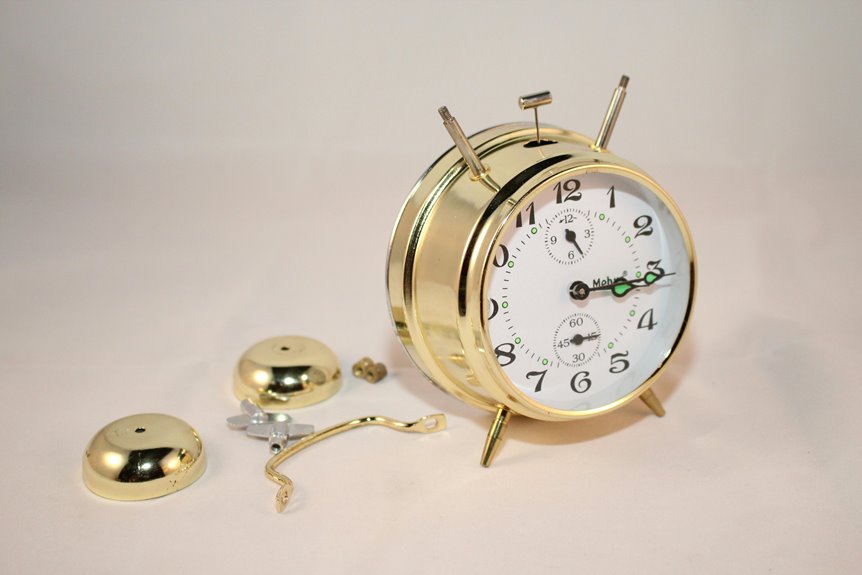You might not realize it, but knowing when to replace your mouse can save you a lot of frustration. If you're dealing with constant disconnections or erratic movements, it's worth considering a new device. Sometimes, repairs just aren't worth it. But how do you know when it's truly time to let go? Let's explore the signs that indicate it might be time for an upgrade.
Key Takeaways
- Replace your mouse if repair costs exceed half the price of a new one, making replacement more economical.
- Consider replacing if experiencing frequent disconnections, lagging, or unresponsive buttons that disrupt your workflow.
- Physical damage like cracked shells or broken scroll wheels often warrants replacement instead of repair.
- If your mouse is incompatible with current operating systems or shows significant performance decline, opt for a new one.
- Evaluate the mouse's age; older models may not support new features, making replacement a better long-term solution.
Signs Your Mouse Is Beyond Repair
When your mouse starts acting erratically or becomes unresponsive, it might be time to consider if it's beyond repair. If you notice persistent lagging, skipping, or unexpected clicks, these can signal deeper issues.
Additionally, check for physical damage. If the cable's frayed or the buttons stick, you may face a losing battle with fixes. Dust and debris can often be cleaned out, but if that doesn't help, it's a red flag.
Frequent disconnections or connectivity problems might also indicate underlying faults that are hard to fix. Lastly, if the mouse isn't recognized by your computer despite troubleshooting, it's likely time to accept that replacement is the best option.
Don't waste time and effort on a device that's reached its limit.
Common Issues That Signal a Replacement
After recognizing that your mouse may be beyond repair, it's important to identify common issues that signal it's time for a replacement.
If your mouse frequently disconnects or lags, it can disrupt your workflow and cause frustration. Another red flag is if the buttons stick or don't respond consistently; this can hinder your productivity.
Additionally, if your mouse feels physically damaged—like a cracked shell or broken scroll wheel—consider replacing it. You might also notice significant battery drain in wireless models, indicating it's time for a new device.
Lastly, if your mouse isn't compatible with your current operating system or device, don't hesitate to invest in a modern alternative.
Trust your instincts; a reliable mouse is key for smooth navigation.
Cost-Benefit Analysis: Repair vs. Replacement
Deciding whether to repair or replace your mouse can be tricky, especially when weighing the costs involved.
First, consider the repair costs. If fixing it's more than half the price of a new mouse, replacement might be the better option. Also, factor in your time; if you're spending hours troubleshooting or waiting for repairs, that's valuable time lost.
Next, think about the mouse's performance. If the cost of repair doesn't guarantee a reliable fix, it's probably time to invest in a new model.
Lastly, don't forget about warranty or service plans. If you've got coverage, repairing could be more feasible.
Ultimately, balancing upfront costs with long-term usability helps you make the best choice.
Evaluating the Age of Your Mouse
How long have you been using your mouse? If it's been a few years, it might be time to evaluate its age.
Mice can wear out over time, and older models may not perform as well as newer ones. Here are three things to consider when assessing your mouse's age:
- Performance Issues: If your cursor lags or skips, it's a sign your mouse might be aging.
- Physical Wear: Look for signs of wear and tear, like frayed cables or unresponsive buttons.
- Compatibility: As technology evolves, older mice may struggle with new software or operating systems, impacting your productivity.
If you notice any of these issues, it's worth considering a replacement.
Choosing the Right Replacement Mouse
What features should you prioritize when choosing a replacement mouse? First, consider the mouse's ergonomics. A comfortable grip can prevent strain during long sessions.
Next, look at the sensor type; optical sensors are great for most surfaces, while laser sensors offer versatility. DPI (dots per inch) is crucial too; higher DPI allows for quicker, more precise movements.
If you game, a mouse with customizable buttons and RGB lighting might enhance your experience. Wireless options can reduce desk clutter, but ensure battery life meets your needs.
Lastly, read reviews to gauge durability and performance. By focusing on these features, you'll find a mouse that fits your preferences and enhances your productivity or gaming experience.
Frequently Asked Questions
How Long Do Most Mice Typically Last Before Replacement?
Most computer mice typically last around three to five years with regular use. If you notice erratic movements or unresponsive buttons, it might be time to consider a replacement before your productivity suffers.
Can I Recycle My Old Mouse?
Yes, you can recycle your old mouse! Many electronics stores and recycling centers accept them. Just check local guidelines to ensure proper disposal. It helps reduce e-waste and supports environmental sustainability, so you're making a positive impact!
What Features Should I Look for in a New Mouse?
When choosing a new mouse, consider ergonomic design, DPI settings for sensitivity, wireless or wired options, additional programmable buttons, and compatibility with your devices. These features enhance comfort and efficiency for your daily tasks.
Will a New Mouse Improve My Gaming Performance?
A new mouse can significantly boost your gaming performance. With enhanced precision, faster response times, and customizable buttons, you'll notice improved control and speed, giving you a competitive edge in your favorite games.
Is It Worth Investing in a High-End Mouse?
Investing in a high-end mouse can enhance your experience, especially if you're gaming or working extensively. You'll notice improved precision and comfort, making it worth the price if you prioritize performance and quality.
